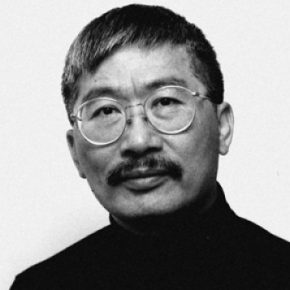 Being published for the first time is a challenge, especially since the odds are so sharply stacked against emerging writers. This was the case for several young Asian Canadian writers primarily living in Vancouver as the shift to multiculturalism began taking place in the late 1970s. Until then Canadian fiction had largely been focused on English and French voices, but new times required new stories. The Asian Canadian Writers Workshop sprang up and would go on to start not just Ricepaper, but also the LiterASIAN Festival and the Jim Wong-Chu Emerging Writers Award, which is open for poetry submissions until July 1st, 2017.
Being published for the first time is a challenge, especially since the odds are so sharply stacked against emerging writers. This was the case for several young Asian Canadian writers primarily living in Vancouver as the shift to multiculturalism began taking place in the late 1970s. Until then Canadian fiction had largely been focused on English and French voices, but new times required new stories. The Asian Canadian Writers Workshop sprang up and would go on to start not just Ricepaper, but also the LiterASIAN Festival and the Jim Wong-Chu Emerging Writers Award, which is open for poetry submissions until July 1st, 2017.
This award, newly renamed in honour of Jim Wong-Chu for his pioneering efforts in creating a unique voice for the community, is now in its 18th year. Open to Canadian writers of Pacific Rim descent, the only stipulation is that they have yet to publish a book-length work of poetry, fiction, or nonfiction. Despite the relative recency of the award, it has proved to be a gateway to literary fame for several of its previous winners. Rita Wong burst on to the scene with Monkey Puzzle, while Madeleine Thien went from Simple Recipes to being shortlisted for the Man Booker Prize in 2016. Both of them got a head start with the Emerging Writers Award, as have many others besides them.
In addition to serving as a gateway, the award was a landmark step in collecting and establishing voices for people who were traditionally discriminated against in Canada’s uneasy history. By providing an avenue for writers to tell their stories, it enables them to make an important contribution to the mosaic of Canadian literature while showcasing stories from different perspectives.
This year the judges are looking for books of poetry at least 80 pages in length, with a book deal in store for the winner. The competition will be juried by Fiona Lam, Glenn Deer, and Yilin Wang. Happy writing!
A Short Q&A with Rita Wong
Q. How has winning the award impacted your career?